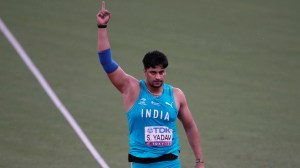Tariffs, reforms in the spotlight at India-EU summit
The road to successful completion of the Hong Kong ministerial meet of the World Trade Organisation (WTO) in December grew bumpier with the ...

The road to successful completion of the Hong Kong ministerial meet of the World Trade Organisation (WTO) in December grew bumpier with the European Union (EU) and India crossing swords at the EU-India summit in New Delhi on what needs to be done to make the on-going negotiations a success.
Speaking at the summit jointly organised by the CII, Ficci and the commerce ministry, EU Trade Commissioner Peter Mandelson pointed out that India needed to open up its economy more and should use the next 13 weeks till the Hong Kong ministerial to think and act boldly. It should make a case for greater openness to the developing world and show global leadership, he said.
Stating that India could achieve considerable economic progress only by liberalising more, Mandelson said India could attract adequate levels of foreign direct investment and increase its exports through greater openness in the on-going Doha round.
Indian Commerce Minister Kamal Nath pointed out that while tariffs may be low in the developed world, markets are becoming increasingly difficult to penetrate due to mounting stringency of standards, cumbersome and complex rules and procedures and frequent use of trade defence instruments.
He added that India expected the results of the on-going negotiations to provide developing countries better opportunities to use trade for fulfilling their developmental goals. ‘‘There has to be a significant increase in market access on agricultural and non-agricultural products, as well as the key area of services,’’ he said.
In the services sector, Nath said the European Union should look at outsourcing as a business cooperation method which serves the interests of both sides and strengthens competitiveness, and not as something that detracts from its own prosperity.
The fundamental requirement for such a model is a liberal and easy regime allowing for free movement of natural persons, he said.
Without responding to Nath’s suggestions, Mandelson said India needed to have a more liberal FDI regime especially in sectors like retail, infrastructure and food.
The EU’s anti-dumpng actions against Indian products were another major concern for India, the Indian commerce minister said. A disproportionately large number of products in textiles, electronics, chemicals, pharmraceuticals, herbal remedies and steel sectors face such actions.
Photos



- 01
- 02
- 03
- 04
- 05




























